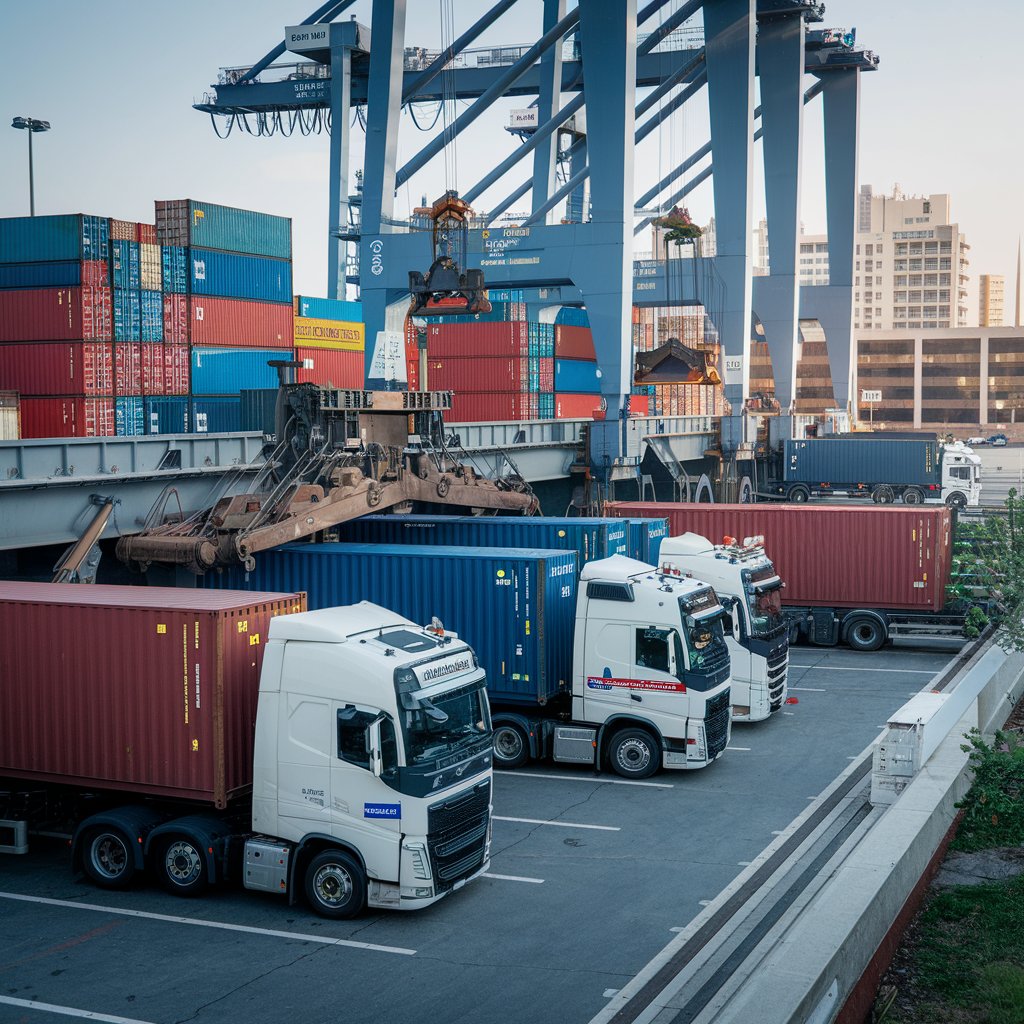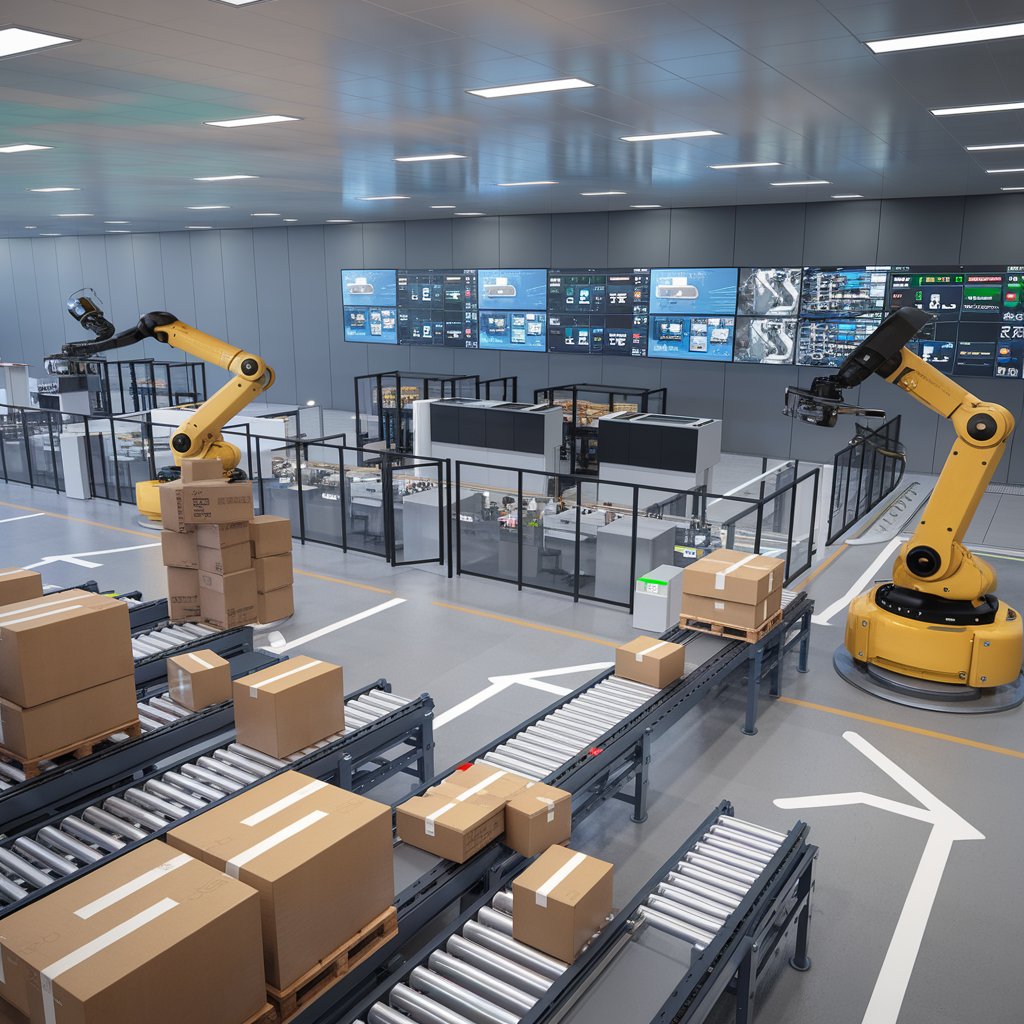Careers in Modern Logistics: The Complete Guide for 2024

Quick Jump Menu
- Industry Overview
- Top Logistics Career Paths
- Required Skills & Qualifications
- Technology in Logistics
- Salary Expectations
- How to Get Started
- Future Growth Prospects
Industry Overview
The logistics industry is experiencing unprecedented growth, driven by e-commerce expansion and technological advancement. From entry-level positions to executive roles, opportunities abound in this dynamic field.
Key Industry Statistics:
- 🚀 15% projected growth in logistics jobs through 2026
- 💼 Over 1.7 million people employed in logistics
- 💡 60% of companies investing in logistics technology
- 📈 Average salary increase of 8% year-over-year

Top Logistics Career Paths
1. Operations Management
What You’ll Do:
- Oversee daily logistics operations
- Manage team performance
- Optimize processes
- Monitor KPIs
- Implement new technologies
Growth Path: Junior Operations Coordinator → Operations Manager → Senior Operations Director
2. Supply Chain Management
Key Responsibilities:
- Plan supply chain strategy
- Manage vendor relationships
- Optimize inventory levels
- Coordinate cross-functional teams
- Analyze supply chain metrics
Career Progression: Supply Chain Analyst → Supply Chain Manager → Global Supply Chain Director
3. Transportation Management
Core Duties:
- Route optimization
- Carrier relations
- Fleet management
- Cost control
- Performance tracking
Advancement Path: Transportation Coordinator → Transportation Manager → Head of Transportation
4. Warehouse Management
Daily Tasks:
- Inventory control
- Staff supervision
- Safety compliance
- Technology implementation
- Process improvement
Career Track: Warehouse Associate → Warehouse Supervisor → Warehouse Operations Manager
5. Technology and Systems
Key Focus Areas:
- TMS implementation
- WMS optimization
- Data analytics
- Automation systems
- Software integration
Career Development: Systems Analyst → IT Project Manager → Director of Logistics Technology
Required Skills & Qualifications
Technical Skills
- Supply Chain Software
- SAP
- Oracle SCM
- Manhattan Associates
- JDA Software
- Analytics Tools
- Excel (Advanced)
- Power BI
- Tableau
- SQL
- Management Systems
- TMS (Transportation Management Systems)
- WMS (Warehouse Management Systems)
- YMS (Yard Management Systems)
Soft Skills
- Problem-solving
- Communication
- Leadership
- Adaptability
- Time management
- Project management
- Team collaboration
Certifications
Recommended Credentials:
- APICS CSCP (Certified Supply Chain Professional)
- CLTD (Certified in Logistics, Transportation and Distribution)
- PMP (Project Management Professional)
- Six Sigma Certifications

Technology in Logistics
Current Tech Trends
- Automation
- Robotic Process Automation (RPA)
- Warehouse automation
- Automated sorting systems
- Artificial Intelligence
- Predictive analytics
- Route optimization
- Demand forecasting
- Internet of Things (IoT)
- Real-time tracking
- Environmental monitoring
- Asset management
Required Technical Knowledge
- Basic programming concepts
- Data analysis
- System integration
- Cloud computing
- Cybersecurity basics
Salary Expectations
Entry-Level Positions
- Logistics Coordinator: $40,000 – $55,000
- Supply Chain Analyst: $45,000 – $65,000
- Operations Assistant: $38,000 – $52,000
Mid-Level Positions
- Logistics Manager: $65,000 – $95,000
- Supply Chain Manager: $75,000 – $110,000
- Transportation Manager: $70,000 – $100,000
Senior Positions
- Director of Logistics: $120,000 – $180,000
- VP of Supply Chain: $150,000 – $250,000
- Chief Supply Chain Officer: $200,000+
How to Get Started
1. Education
Recommended Degrees:
- Supply Chain Management
- Logistics
- Business Administration
- Industrial Engineering
- Information Technology
2. Entry-Level Experience
Best Starting Points:
- Internships
- Warehouse operations
- Customer service
- Data entry
- Dispatch coordination
3. Networking
Key Resources:
- Industry associations
- LinkedIn groups
- Professional conferences
- Local logistics meetups
- Online forums

Future Growth Prospects
Emerging Areas
- E-commerce Logistics
- Last-mile delivery
- Reverse logistics
- Urban fulfillment
- Sustainable Logistics
- Green transportation
- Eco-friendly packaging
- Carbon footprint reduction
- Digital Transformation
- Blockchain implementation
- AI integration
- Smart contracts

FAQ Section
Q: Do I need a degree to work in logistics? A: While not always required, a degree can accelerate career growth and provide essential knowledge.
Q: What’s the best entry-level position? A: Logistics Coordinator or Supply Chain Analyst roles offer excellent exposure to various aspects of the industry.
Q: How important is technology knowledge? A: Increasingly critical – modern logistics relies heavily on technology for efficiency and optimization.
Success Tips
- Stay Updated
- Follow industry news
- Attend webinars
- Take online courses
- Read trade publications
- Build Experience
- Seek diverse projects
- Volunteer for new initiatives
- Cross-train in different areas
- Learn from mentors
- Develop Skills
- Technical training
- Leadership development
- Project management
- Communication skills
Conclusion
The logistics industry offers diverse career opportunities with strong growth potential. Success comes from combining:
- Technical knowledge
- Practical experience
- Professional development
- Industry networking
- Continuous learning
Next Steps
- Assess your current skills
- Choose a career path
- Plan your education
- Build your network
- Start your job search
